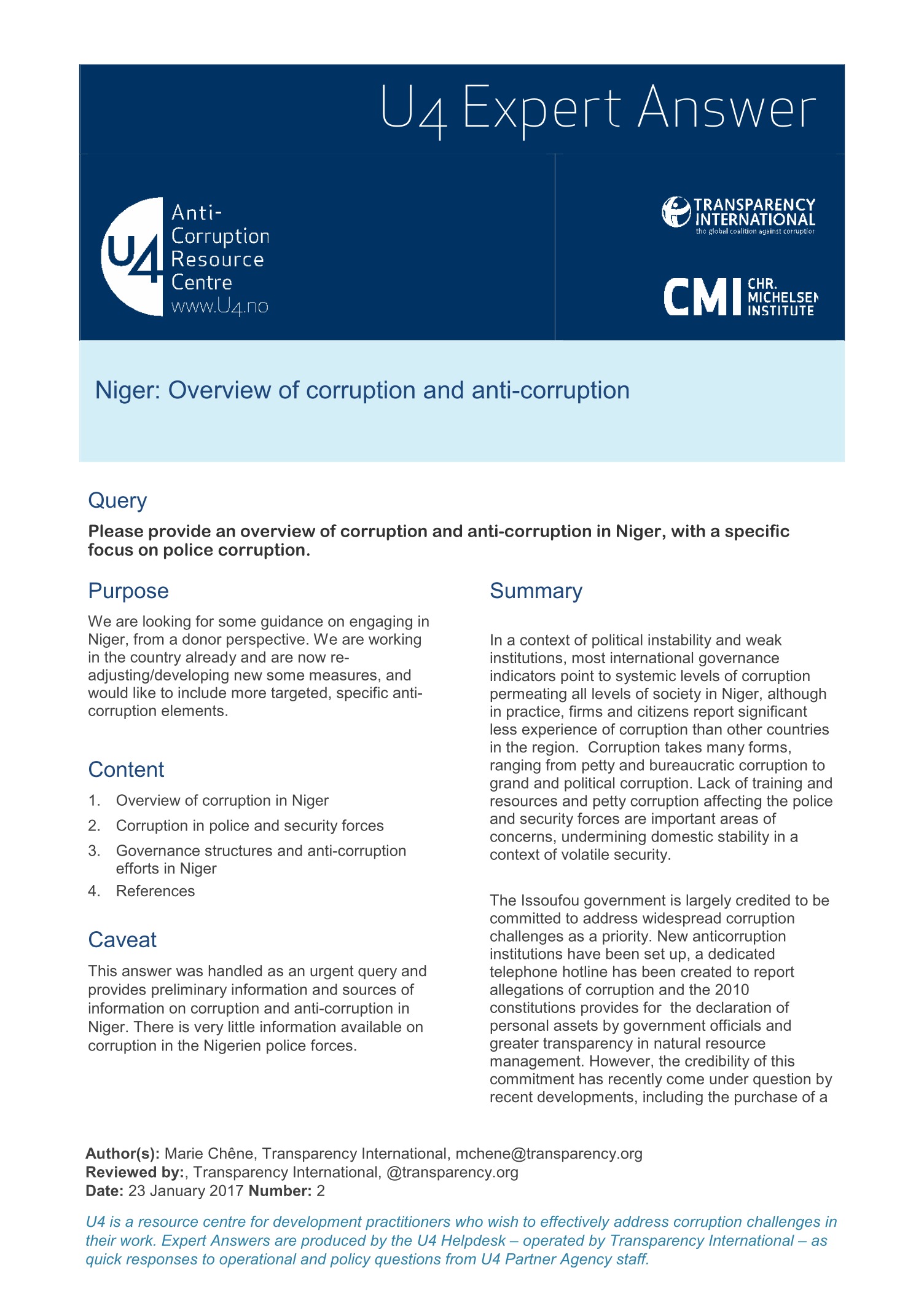U4 Helpdesk Answer
Niger: Overview of corruption and anti-corruption
In a context of political instability and weak institutions, most international governance indicators point to systemic levels of corruption permeating all levels of society in Niger, although in practice, firms and citizens report significant less experience of corruption than other countries in the region. Corruption takes many forms, ranging from petty and bureaucratic corruption to grand and political corruption. Lack of training and resources and petty corruption affecting the police and security forces are important areas of concerns, undermining domestic stability in a context of volatile security.
The Issoufou government is largely credited to be committed to address widespread corruption challenges as a priority. New anticorruption institutions have been set up, a dedicated telephone hotline has been created to report allegations of corruption and the 2010 constitutions provides for the declaration of personal assets by government officials and greater transparency in natural resource management. However, the credibility of this commitment has recently come under question by recent developments, including the purchase of a luxurious government jet and persistent allegations of corruption against high-ranking government ministers.

Cite this publication
Chêne, M. (2017) Niger: Overview of corruption and anti-corruption. Bergen: U4 Anti-Corruption Resource Centre, Chr. Michelsen Institute (U4 Helpdesk Answer 2017:2 )
Disclaimer
All views in this text are the author(s)’, and may differ from the U4 partner agencies’ policies.
This work is licenced under a Creative Commons Attribution-NonCommercial-NoDerivatives 4.0 International licence (CC BY-NC-ND 4.0)

